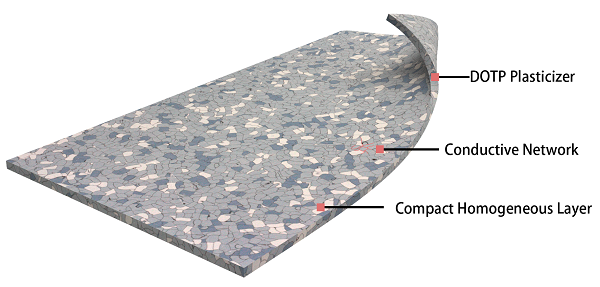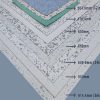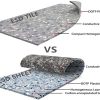ESD Tiles or Electrostatic Discharges Tiles are a conductive or a static dissipative flooring system. It designs for use in areas where individuals and components need to protect from the risk of electrostatic damage.
ESD Tiles are one of the main cares against electrostatic discharges. Something that, for many companies, could represent a smart investment to avoid very representative problems that put their assets at risk.
But what is electrostatic discharge or ESD? Let us understand in the following section.
What is Electrostatic Discharges Tiles?
Electrostatic discharge (ESD) is an electrostatic phenomenon that causes a sudden, momentary electric current to flow between two objects of different electrical potential.
ESD Tiles are coatings designed to control the electrical resistance of the floor. This will prevent electrostatic discharge (ESD) events and are also suitable for protecting hardware from ESD.
Although ESD is not normally dangerous in humans, it can seriously damage an electronic circuit or component.
Types of ESD Tiles:
Among the types of ESD, floors are carpets, vinyl, tiles, rubber, and “resins” that generally have a solid color. It comes in various finishing options, excellent chemical and abrasion resistance. These are also the most suitable when we have movements of loads or equipment on the floor.
Applications:
ESD Tiles are indispensable for the electronics industry, operating rooms, or environments where volatile or explosive chemicals produce or work with.
Why do we need ESD tiles?
In the electronics industry, one of the main causes of device failure is electrostatic discharge (ESD). An ESD event basically produces a spark (a microbeam effect), which passes from one charged conductive surface to another.
This incredibly fast transfer of what was once a static charge (without movement) can cause fires, explosions, create heat, light, and even sounds. It is this spark without warning that must avoid or control.
In industries where electronic components or volatile chemicals produce, static electricity can cause major damage, injury, and financial loss. All active electronic components and equipment, e.g. microchips, integrated circuits, and machines are sensitive to ESD events.
To better understand the risk of an ESD event, for our body to perceive an electrostatic discharge, it must be greater than 3500 Volts. However, a shock of just 20 Volts can cause loss of information and damage critical equipment. This is why the importance of mitigating the ESD effect can already cause catastrophic damage before we perceive it with our senses.
Where to use Electrostatic Discharges Tiles?
ESD tiles should mandatory in areas where personnel work in foot operations. It also uses widely where it is impractical to wear a wrist strap, heel straps, or conductive or static dissipative shoes.
Conductive or dissipative?
In very simple terms, the greater the danger from an ESD event, the more conductive the pavement must be. However, the lower the resistance of a floor, the greater the risk of electrocution from discharge in the electrical network. So, the surface resistivity must be balanced according to the risk of spark or static discharge inherent in the site of the process.





